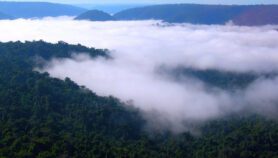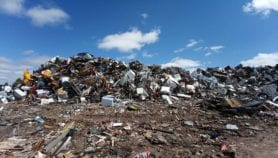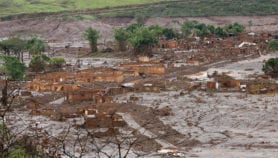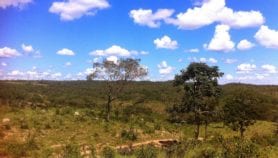By: Mike Shanahan
Send to a friend
The details you provide on this page will not be used to send unsolicited email, and will not be sold to a 3rd party. See privacy policy.
There is no link between deforestation and the large-scale floods that cause widespread death and devastation, say researchers in a report issued today (13 October).
The release of the report, which says the media have got it wrong, coincides with major flooding in Central America caused by Tropical Storm Stan.
Several media outlets and environmental groups have said that the death toll in Central America, now approaching 1,000 people, is higher than it would have been if fewer or no trees had been cut down.
Reuters reported on 6 October that Greenpeace had said “the flooding in Mexico was made worse by deforestation, as water rushed down bare hillsides”.
But David Kaimowitz, director-general of the Center for International Forestry Research (CIFOR), which published the report with the UN Food and Agriculture Organisation, says it is all a matter of scale.
No amount of trees would have been able to stop the vast amount of dirt that needs to move to make an entire village disappear, he says.
Kaimowitz says that scientists’ rule of thumb is that “if landslides are deeper than one metre, trees are not going to make a difference”.
According to the report, it is a myth that forests reduce the risk of major floods by acting like a sponge that soaks up rainfall and slowly releases it to lower-lying areas.
The ‘sponge’ effect depends on the depth and structure of soil, and the extent of rainfall — not just the presence of trees, explain the authors.
Major floods, they say, follow intense rainfall that even forests cannot absorb because their soil gets saturated.
The report accepts that since deforestation became widespread in developing countries, major floods have cost more lives, but says this is because more people now live and work in flood plains.
The number of major floods has not changed since the 19th century when forests were abundant throughout the tropics, it says.
According to Reuters, Greenpeace says the flooding in Central America “underlines the importance of conserving eco-systems, particularly forests and mangroves, to prevent the impact of hurricanes.”
Kaimowitz, however, says that “planting trees and protecting forests can have many environmental benefits, but preventing large-scale floods is not one of them”.
But he adds, “we are not saying that developing countries should de-prioritise planting trees.”
“In addition to producing valuable forestry products, trees can store carbon, reduce soil erosion, and help to maintain biodiversity.”
Kaimowitz says the media and environmental groups need a better grip on science.
“Society will always have to make difficult decisions about which forests should be cleared or logged and where trees should be planted,” he says.
These decisions should be “based on the best scientific evidence available,” he adds.
He says the media and environmental groups “should not be making claims that most scientists would agree are simply not true.”












